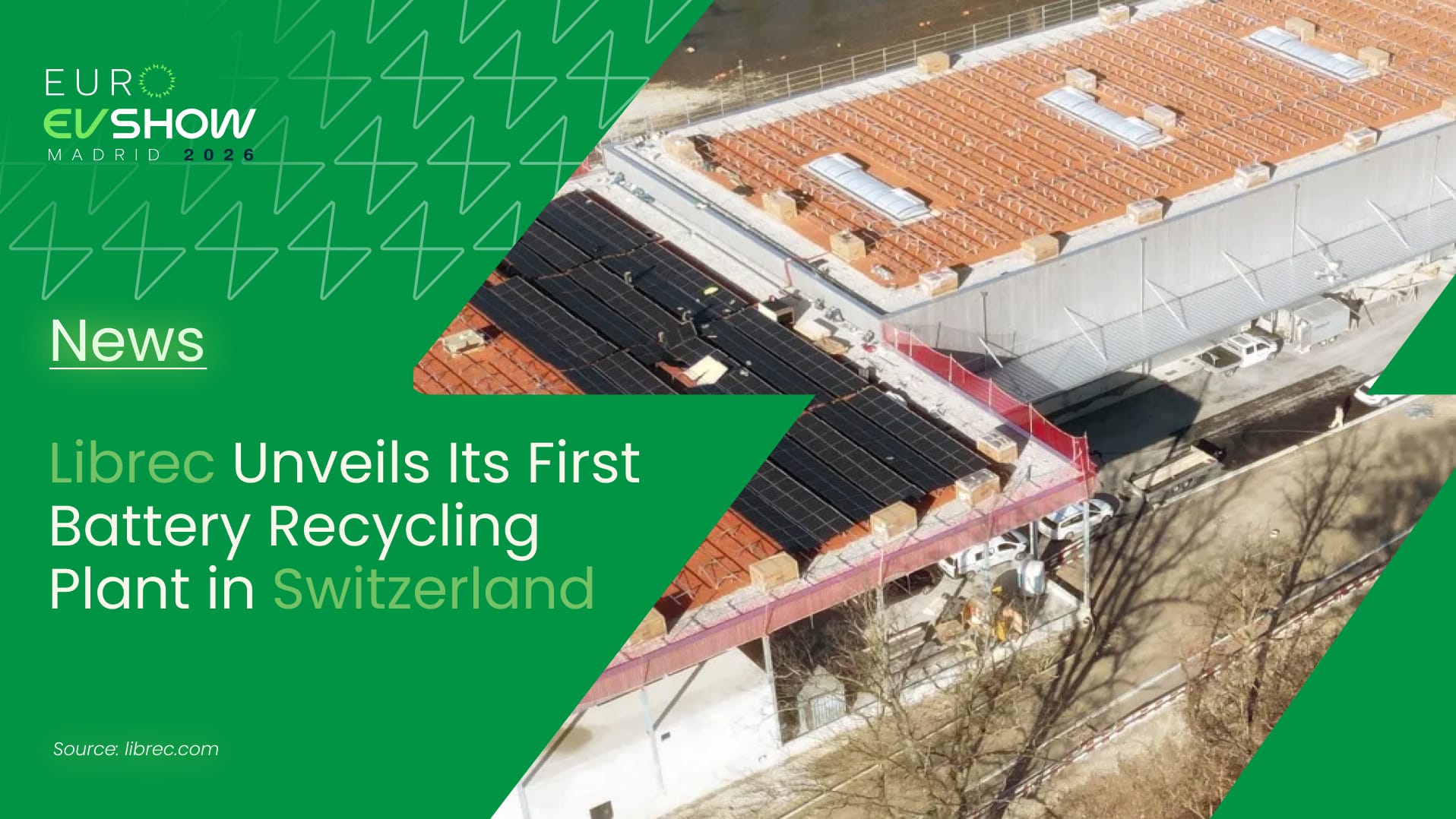Biberist, Switzerland, 03 May 2025: Librec has officially inaugurated its first industrial-scale battery recycling plant dedicated to electric vehicle batteries in Biberist, located in the Swiss canton of Solothurn, for which a new hall was built on the site of a former paper factory, which will manufacture 12,000 tonnes of batteries for electric cars per year.
Originally announced in the summer of 2023, the recycling plant is now operational and claims to achieve a “previously unattained recovery rate of over 97%.” It is engineered to handle both used vehicle batteries and production rejects, contributing significantly to Europe’s efforts in establishing a circular battery economy.
At full operational capacity, the plant will run in three shifts. The batteries are initially fully depleted after delivery. Those earmarked for recycling are opened, connected to advanced discharge technology, and all remaining energy is extracted. According to the company, this energy provides one-third of the plant's energy needs; the remaining energy is generated by renewable sources on the plant's rooftops.
Librec’s process involves dismantling, shredding, and drying the batteries after discharge. This results in the creation of a fine powder known as "black mass," which contains valuable materials and is crucial for the production of new batteries.
After processing, critical raw materials such as cobalt, lithium, nickel, copper, and aluminium are recovered and made available for reuse in battery production. This capability offers a regional alternative to the prevailing situation in Europe, where most black mass must currently be shipped to China and Southeast Asia due to a lack of local processing infrastructure.
In an official press release by Librec, Jodok Reinhardt, Managing Director of Librec, stated, “We are receiving very good feedback on our central recyclate, the so-called black mass, and can assume that we are currently producing the best black mass in Europe at the most attractive conditions and with maximum sustainability.”
In the same press release, Jürg Steiger, Chairman of the Board of Directors of Librec, commented, “Next, we want to consolidate our operations in Biberist and maximise capacity utilisation. Based on this experience, we will examine attractive partners for cooperation abroad and also our own projects abroad.”
Librec’s inauguration represents a significant step forward in advancing Europe’s sustainable EV battery ecosystem. By localising the recovery of critical raw materials, the facility not only reduces reliance on overseas processing but also strengthens regional supply chains, paving the way for a more resilient and circular battery economy in Europe.

